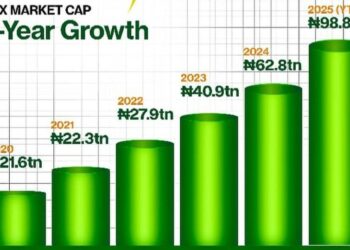Some financial experts have called for the removal of visas by countries on the continent to encourage the free movement of means of production.
This they said would also drive trade on the continent.
They spoke while briefing journalists on the sidelines of the ongoing African Economic Conference (AEC) in Addis-Ababa, Ethiopia, on Thursday.
Chief economist and vice president of the African Development Bank (AfDB), Prof. Kevin Urama, however, urged governments to look at their policies and economic realities to ensure this.
“We would encourage African countries to take advantage of opening their economies to the 1.4 billion people on the continent and then be able to leverage all the factors of production that it entails.
“If you look at other regional blocks, they already do that. But this is already on the move on the continent, as some countries have already done that, so we are hoping and expecting others to follow in their own time,” Urama said.
On currency and financial harmonisation, Urama said, “ Currently, we are trading without a harmonised currency.We need to find monetary policies we can combine with smart fiscal policies that will help to stabilise our currency so that we can reduce forex risk in trading between countries.
“The AfCTA has this pan-African payment system that is being developed, and we are already looking at addressing those currency risks in several ways.
“Going forward, this is what we are working on before talking about the harmonisation of currency, which is a longer and more complex thing to discuss.
“If you have a stable macroeconomic policy environment, it helps in revenue mobilisation and also improves the business environment.
“This is something countries need to do concurrently to improve domestic revenue mobilisation and enhance the business environment so revenue can leverage more capital to allow countries to invest in productive assets,” he said.
The vice-president urged countries to focus on domestic revenue mobilisation and improve the quality and value of our taxation so that we will collect and use tax revenues to create more wealth for people.
“We need to block leakages, illicit financial flows, non-sustainable borrowing, and de-risk our market by creating a stable economic market.
“After doing all these, we need to prioritise African products, produce what we need and consume what we produce to create demand and encourage Small and Medium Enterprises (SMEs) within the continent,” Urama said.
Also speaking, the director of the macroeconomic growth division of the Economic Commission for Africa (ECA), Adams Elhiraika, said there was no way Africa could achieve economic and social development without industrialisation.
According to Elhiraika, there is the need for cooperation among stakeholders for countries to be industrialised on the continent, hence the need for a comprehensive approach.
While restating the need for countries on the continent to add value to their products, he said when this was done, it would create jobs and promote linkages on the continent.
“Adding value is critical to promote trade and achieve AfCFTA. AfCFTA is a great opportunity, but we must address the various challenges we have to achieve it,” he stated.
Meanwhile, the director, Regional Services Centre, United Nations Development Programme (UNDP), Mr Matthias Naab, reiterated the need for inclusion on the continent.
Naab said a lot of potential and opportunities exist on the continent.
Therefore, African governments should rise and ensure sustained political will to grow the continent.
He said, “The governments should ensure policies and legislations that support business environment, ease business and ensure all have easy access to do business.
“There is, however, the need for inclusion; everybody should be carried along; for SMEs to blossom, we need to provide a space for them to see themselves as a block, and that is what AfCTA stands to address.”





